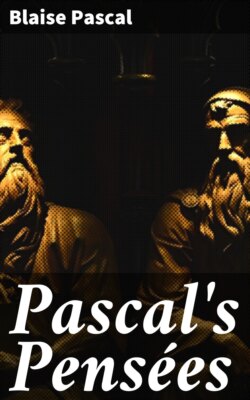Читать книгу Pascal's Pensées - Blaise Pascal - Страница 8
На сайте Литреса книга снята с продажи.
2
ОглавлениеThere are different kinds of right understanding;[2] some have right understanding in a certain order of things, and not in others, where they go astray. Some draw conclusions well from a few premises, and this displays an acute judgment.
Others draw conclusions well where there are many premises.
For example, the former easily learn hydrostatics, where the premises are few, but the conclusions are so fine that only the greatest acuteness can reach them.
And in spite of that these persons would perhaps not be great mathematicians, because mathematics contain a great number of premises, and there is perhaps a kind of intellect that can search with ease a few premises to the bottom, and cannot in the least penetrate those matters in which there are many premises.
There are then two kinds of intellect: the one able to penetrate acutely and deeply into the conclusions of given premises, and this is the precise intellect; the other able to comprehend a great number of premises without confusing them, and this is the mathematical intellect. The one has force and exactness, the other comprehension. Now the one quality can exist without the other; the intellect can be strong and narrow, and can also be comprehensive and weak.
